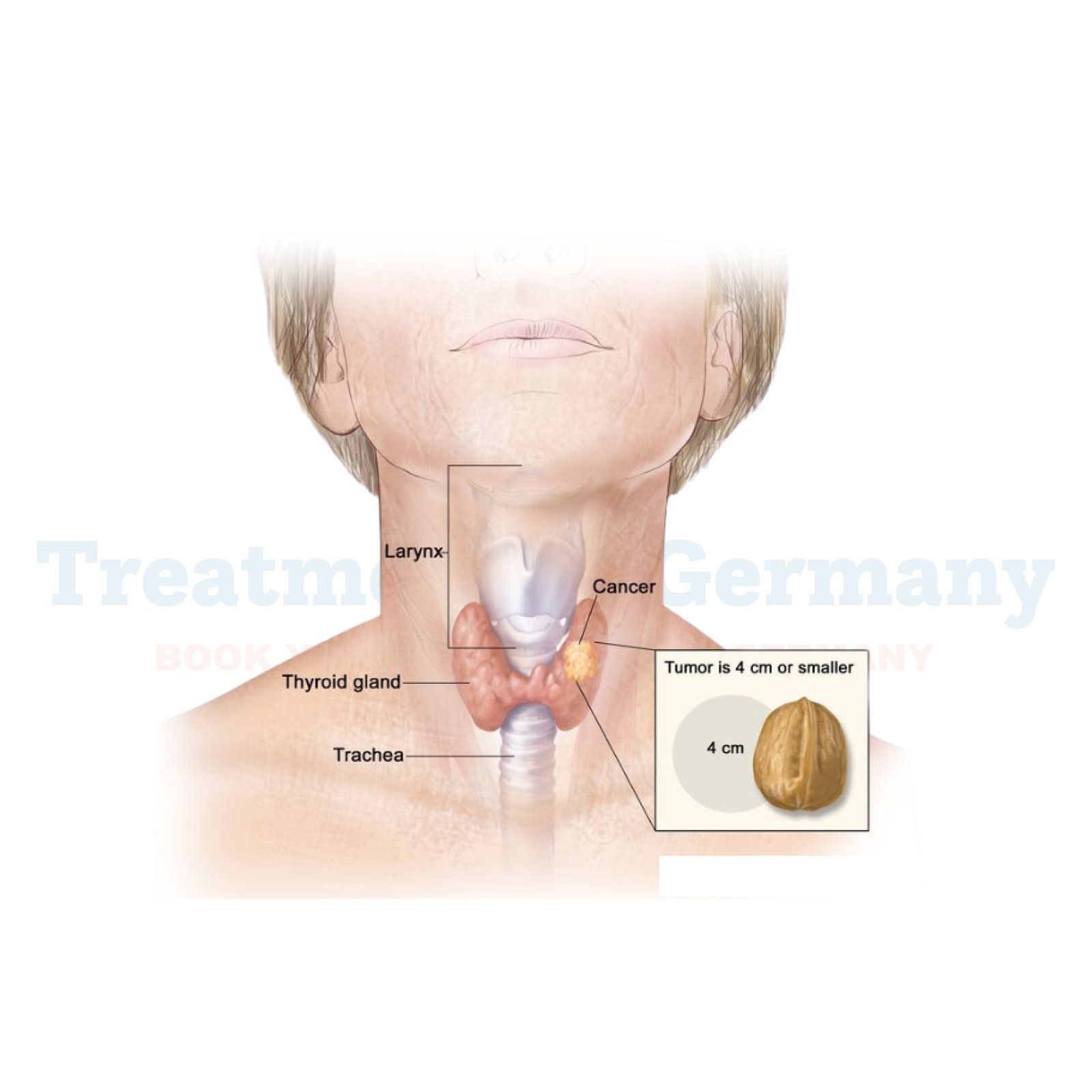Radioactive iodine (RAI) therapy is a sophisticated therapy widely used in Germany for the treatment of diseases of the thyroid, including hyperthyroidism and specific forms of thyroid cancer. This treatment is specifically remarkable because it employs iodine-131, which selectively kills abnormal thyroid tissue or cancerous cells without causing any special harm to the rest of the body.
Germany possesses advanced health care facilities and support, which ranks it one of the world's best for 'effective RAI treatment with potential working in the line of patient care and safety'.
RAI treatment exploits the natural affinity of the thyroid for iodine as a targeting mechanism for radiation. The thyroid is the primary source of iodine in the body, which is used to make essential thyroid hormones called T3 and T4 that regulate several physiological activities. In RAI treatment, iodine-131 emits radiation that destroys the DNA of the cells, destroying the thyroid cells through this targeted process. This minimizes tissue exposure to other parts of the body, as it proves a safe, efficient treatment.
RAI is specifically valuable for patients with such diseases as Graves' disease, PTC, or follicular thyroid cancer where the drugs are not as effective or more risky compared to the surgery.
Radioactive Iodine Therapy Applications
The key applications of RAI treatment include hyperthyroidism and some kinds of thyroid cancer.
Treatment of Hyperthyroidism with Radioactive Iodine
It causes overproduction of thyroid hormones by the thyroid gland, which results in signs including tachycardia or increased heart rate, weight loss, and fatigue. The cause is usually due to Graves' disease, which is an autoimmune disorder.
When is RAI used with hyperthyroidism in Germany?
RAI therapy is highly efficacious for hyperthyroidism. Patients are often left with a destroyed thyroid gland post-treatment and must take levothyroxine, a synthetic thyroid hormone, for life to maintain normal hormone levels.
RAI Therapy for Thyroid Cancer
RAI therapy is an integral component of treatment for well-differentiated thyroid cancers: papillary thyroid cancer (PTC) and follicular thyroid cancer.
How does it work for thyroid cancer?
Preparation for Radioactive Iodine Therapy in Germany
In Germany, preparation is considered a crucial step in RAI therapy for it to be efficient and safe.
Medical Evaluation
Patients undergoing RAI therapy would undergo the following medical evaluation before receiving the therapy:
Low-iodine diet
A low-iodine diet is recommended for 1-2 weeks before treatment to maximize the uptake of radioactive iodine by thyroid cells. This diet excludes any food containing dairy products, seafood, and iodized salt for the period.
Stopping Some Medication
Most patients on thyroid-suppressing medication, such as propylthiouracil or methimazole, would need to be stopped at least 1 week before undergoing treatment because they inhibit iodine uptake.
Precautions in Lactating Women
It is not recommended to administer this drug to lactating women, as there is a potential risk of transmission to the nursing infant. At least six weeks before the treatment, patients who are breastfeeding should stop this because radioactive iodine may go into the breast milk.
Radioactive Iodine Therapy Procedure in Germany
Although RAI therapy is easy, preparation and aftercare in Germany are strictly taken into contention.
How is RAI administered?
The RAI can be taken orally. Some patients take it as a liquid solution, while for others, it is administered through an IV injection. Hyperthyroidism should require only one dose. Thyroid cancer treatment sometimes necessitates increasing the dosage and usually requires a long stay at the hospital in Germany.
Procedure after the treatment
The excretion of RAI is mainly through the urine. It may be present in a small amount of saliva, sweat, or stool. Patients are monitored for how close side effects occur and are advised on steps to avoid exposing others to radiation.
Follow-up and recovery
After RAI therapy, care is required to not expose others and aid recovery.
Precautions
Isolation
Patients will be isolated for 3 days up to 2 weeks; the period will depend on the dose of radioactive iodine. For those that are treated with thyroid cancer, the isolation will be extended.
Risks and Complications of RAI Treatment
RAI treatment is quite safe, but it presents some risks and complications
Short-Term Complications
Long-Term Risks
Critical Complications (Rare)
Innovative Approach to RAI Therapy in Germany
Germany has become prominent for its trailblazing medical technologies and expertise in nuclear medicine. All the clinics here are equipped with modern facilities for RAI therapy and are based on a high accuracy scale while dealing with patients.
This criterion of medical innovation along with customer safety makes these patients interested in visiting Germany for the treatment of thyroid disorders. Countless patients seek the services of highly trained professionals in Germany who use advanced methodologies, tailor-made plans, and sophisticated monitoring facilities.
Germany focuses on quality, ensuring the ideal outcomes with the least risk for patients who have undergone RAI therapy. With strict safety protocols and commitment to research, Germany is always at the forefront globally when it comes to RAI therapy.
Frequently Asked Questions
Can all thyroid tumors be treated with RAI therapy?
No, it only works for the well-differentiated cancers they work well for papillary thyroid cancer or FTC but the other types do not uptake iodine.
How soon after RAI therapy can I return to routine activities?
Patients usually can return to routine activities in 3–7 days, but close interactions with others should be avoided.
What restrictions are required of my diet before RAI therapy?
Patients are placed on a low-iodine diet for 1-2 weeks before therapy to maximize iodine-131 uptake.
Does RAI therapy leave permanent infertility problems?
No, most of the problems with fertility, such as low sperm count or irregular periods, normalize after 1-2 years of RAI therapy.
Is RAI therapy safe to be given to children?
Yes, RAI is safe for children, although administered with due expert supervision, but they receive extra precautionary measures to avoid side effects.
👉 Contact us for further information and receive a complimentary consultation


.webp)
 (1).webp)

.webp)
 (1).webp)


.webp)
 (1).webp)

.webp)
 (1).webp)
